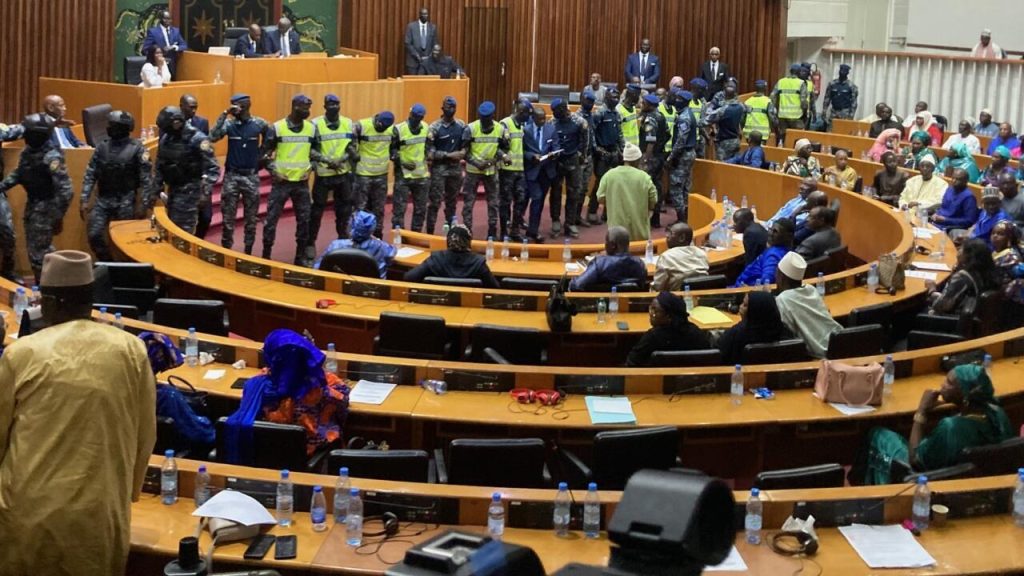Senegal’s parliament is ready to debate a proposed revision of the controversial amnesty law on Wednesday, which has ignited intense public discussion.
The amnesty was initially introduced by former President Macky Sall just before the March 2024 elections in an attempt to quell unrest following his last-minute decision to postpone the vote. While the measure helped opposition leader Ousmane Sonko—now the country’s prime minister—regain eligibility to contest the election, critics argued it shielded those responsible for crimes committed during three years of political turmoil from February 2021 to February 2024.
During this period, 65 people lost their lives in protests, with 51 of them fatally shot. Most of the victims were young, according to an independent coalition of journalists, scientists, and cartographers.

In December, Sonko pledged to repeal the amnesty law to ensure accountability, stating that justice was essential for lasting social peace. “This is not a witch hunt or an act of vengeance—it is about justice,” he told lawmakers.
However, rather than fully repealing the law, lawmakers will instead consider an amendment to interpret it. If approved, the revised law will exclude crimes such as murder, torture, and forced disappearances from amnesty provisions.
The bill’s architect, Amadou Ba, stated that the goal was to “fight against impunity for serious human rights violations.” But opposition figures and civil society activists have criticised the move, accusing the ruling Pastef party of using it to protect its supporters.
Abdou Khafor Kandji of the “Y’en a Marre” (“I’m fed up”) movement argued that the government had shifted its position, moving from full repeal to a partial amendment.
Amnesty International’s Senegal director, Seydi Gassama, expressed cautious optimism, stating that while repealing the law would bring the situation back to square one, the revised version could offer victims a path to justice.


